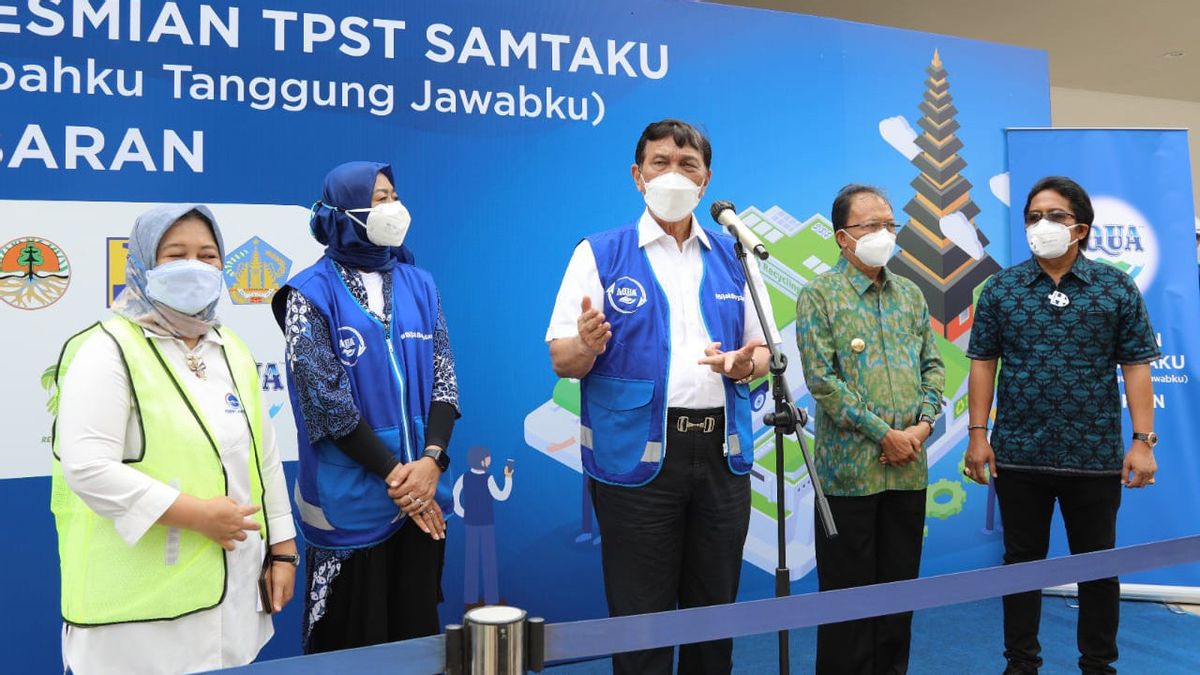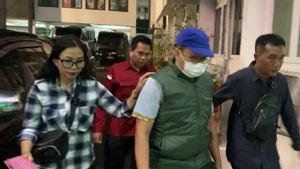BADUNG - Coordinating Minister for Maritime Affairs and Investment (Menko Marves) Luhut Binsar Pandjaitan inaugurated the Integrated Waste Processing Site (TPST) My Waste My Responsibility (Samtaku). This TPST is the largest in Bali.
The Samtaku TPST was built in collaboration with the Badung Regency Government (Pemkab) with PT. Danone-AQUA and PT. Reciki Mantap Jaya (Reciki).
"Collaboration of the regional government and the private sector is a very good example to be applied in handling waste, as well as the implementation of a paradigm shift in integrated waste management with a circular economy approach," said Coordinating Minister Luhut Pandjaitan in Jimbaran, Badung Regency, Friday, September 10.
Luhut said the problem of solid waste in the Denpasar, Badung, Gianyar and Tabanan areas in particular should be a serious concern. Moreover, the Sarbagita Regional Final Processing Site (TPA) is no longer able to accommodate waste.
Since the cancellation of the plan to implement waste processing into electrical energy (PSEL) at the Sarbagita TPA, the government and the provincial government of Bali are targeting to take action to handle waste as close as possible from the source through revitalization and construction of new TPS-3R.
According to Luhut, his party has agreed on steps to complete the handling of waste, by revitalizing TPS-3R and building several new TPSTs, so that waste can be handled as close as possible to the source.
"In addition, with the existence of TPST such as Samtaku, which applies more advanced technology in waste processing, it is hoped that the waste heap in Bali can be handled almost entirely, so that we are no longer dependent on the TPA," he said.
The Samtaku TPST is built on an area of 5,000m2 which is prepared to process 120 tons of waste per day by prioritizing the Zero Waste to Landfill model.
Later, all waste transported to this facility will be processed to be fully reused, so that no residue will be transported to the Final Processing Site.
Meanwhile, Badung Regent I Nyoman Giri Prasta said, every day, waste generated in Bali reaches 4,281 tons, or 1.5 million tons annually. Of this amount, only 48 percent can be managed, while the remaining 52 percent cannot be managed.
For this reason, the Bali Provincial Government and Badung Regency have made plastic waste management the main agenda and have issued a number of policies, one of which is limiting the use of single-use plastics.
"We strongly support the construction of the Samtaku TPST by Danone-AQUA in collaboration with Reciki from the start. In addition to supporting the Bali local government in reducing plastic waste, it is also a solution so that waste can be managed from the source and not only allowed to fill the Suwung TPA, as a disposal center. the biggest garbage in Bali," he said.
Meanwhile, the Director of Sustainable Development for Danone Indonesia Danone-AQUA, Karyanto Wibowo, explained the management of waste management at the TPST Samtaku Jimbaran facility. All waste transported to the TPST will be processed based on its type.
For organic waste, composting will be carried out with a processing capacity of 40 tons per day. Plastic bottles will be recycled into new plastic bottles, and waste residue will be processed using Refuse Derived Fuel (RDF) technology.
"Currently, Danone-AQUA has run a business partnership for recycling used plastic bottles through the development of waste banks, TPS3R/TPST, and plastic waste collectors in 17 districts or cities throughout Indonesia, and has succeeded in collecting at least 13,000 tons of used plastic bottles per year while maintaining helped empower more than 9,000 scavengers," he said.
The English, Chinese, Japanese, Arabic, and French versions are automatically generated by the AI. So there may still be inaccuracies in translating, please always see Indonesian as our main language. (system supported by DigitalSiber.id)













